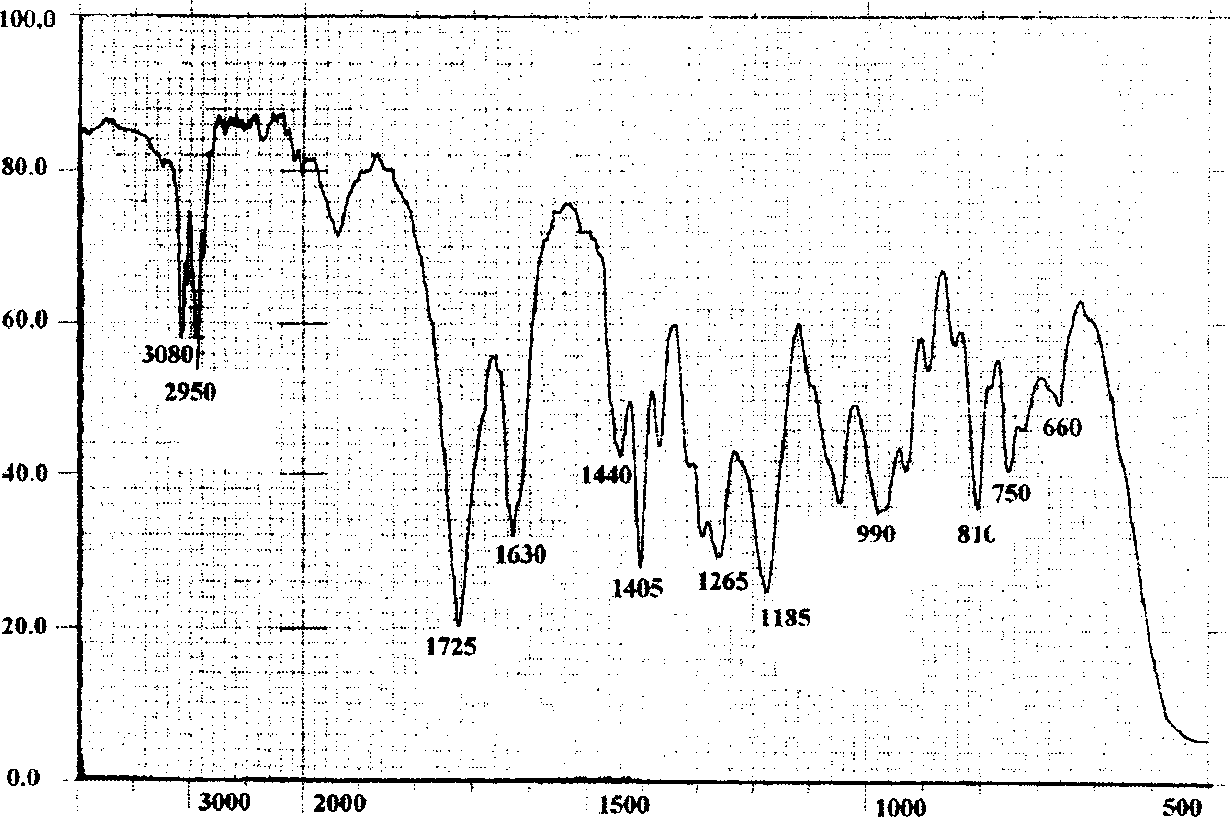Method of separating 1,2-dichloropropane with DD mixture
A technology of dichloropropane and mixture, applied in chemical instruments and methods, preparation of organic compounds, organic chemistry, etc., can solve problems such as imperfect treatment methods, difficult distillation and separation, etc.
- Summary
- Abstract
- Description
- Claims
- Application Information
AI Technical Summary
Problems solved by technology
Method used
Image
Examples
Embodiment 1
[0042] Embodiment 1 (two-step method)
[0043] The DD mixture was dehydrated and simply distilled to remove impurities, and its component content was analyzed by gas chromatography. The acrylic acid is refined by vacuum distillation to remove possible polymers and impurities, and an appropriate amount of polymerization inhibitor is added to prevent its polymerization.
[0044] After installing a stirring device, a water separator, and a condenser on the three-necked flask, add 0.5 mol of acrylic acid and 0.04 g of a polymerization inhibitor DPPH, stir and cool, and add 0.5 mol of sodium hydroxide for neutralization. Then use benzene azeotropic dehydration, vacuum drying to obtain about 47g of sodium acrylate.
[0045] After installing stirring device, condenser and thermometer on the 500ml there-necked flask, add DD mixture 241.3g (containing 1,3-dichloropropene 23%, 0.5mol), sodium acrylate 47g (0.5mol), DPPH0. 04g, triethylamine 3ml. Heat the oil bath to 85-90°C, and reac...
Embodiment 2
[0046] Embodiment 2 (two-step method)
[0047] Implementation steps are the same as in Example 1. The conditions of the esterification reaction were changed as follows: the reaction temperature was 75-80° C., the reaction time was 4 hours, and the amount of triethylamine was 2.5 ml. The purity of 1,2-dichloropropane was 95.5%, and the calculated yield was 82.5%.
Embodiment 3
[0048] Embodiment 3 (two-step method)
[0049] Implementation steps are the same as in Example 1. The conditions of the esterification reaction were changed to: the reaction temperature was 75-80°C, the reaction time was 5 hours, and the amount of triethylamine was 3.0ml, then the purity of 1,2-dichloropropane was 95.0%, and the calculated yield was 83.0%.
PUM
| Property | Measurement | Unit |
|---|---|---|
| density | aaaaa | aaaaa |
| density | aaaaa | aaaaa |
| separation | aaaaa | aaaaa |
Abstract
Description
Claims
Application Information
 Login to View More
Login to View More - R&D
- Intellectual Property
- Life Sciences
- Materials
- Tech Scout
- Unparalleled Data Quality
- Higher Quality Content
- 60% Fewer Hallucinations
Browse by: Latest US Patents, China's latest patents, Technical Efficacy Thesaurus, Application Domain, Technology Topic, Popular Technical Reports.
© 2025 PatSnap. All rights reserved.Legal|Privacy policy|Modern Slavery Act Transparency Statement|Sitemap|About US| Contact US: help@patsnap.com

